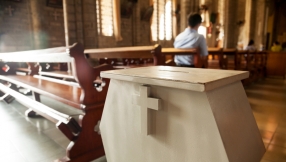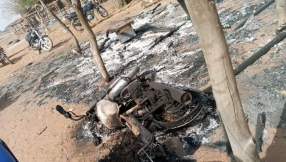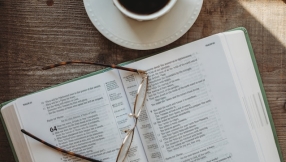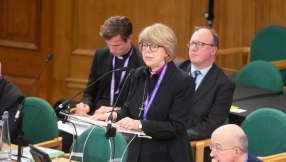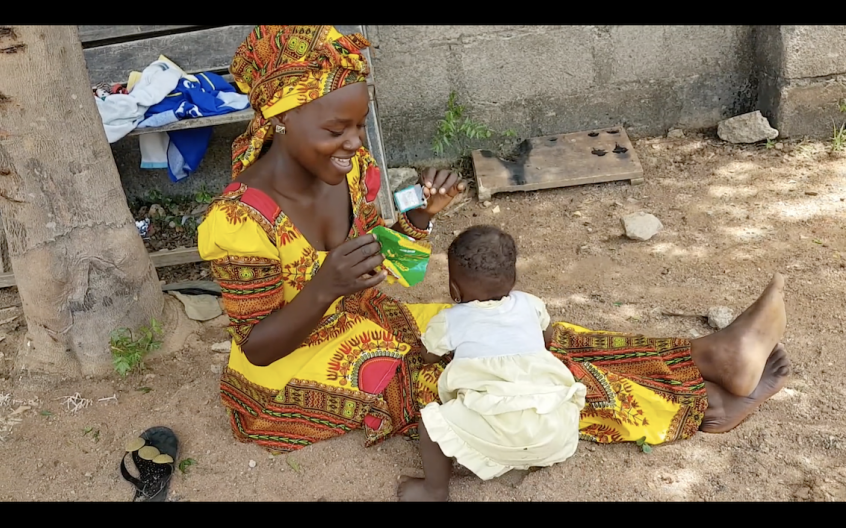
Ijanda, from northern Nigeria, became a mother while she was a slave to Boko Haram soldiers. She never thought that she or her child would ever return home.
One-year-old Warasini is a hyperactive bundle. When she is sitting on her mother's lap, she wants to be on the ground. When she is on the ground, she wants to be in her mother's arms - thrown into the air and caught again in her mother's secure hands.
Warasini's carefree spirit belies the dark circumstances under which she and her older brother, Luka, were conceived.
Their mother Ijanada was abducted from her village in northern Nigeria by the militant Islamic group Boko Haram.
"I was in school, just 14 years old," she remembers. "I would come home from boarding school for the weekend every time there was a school break."
It was on one of these breaks in 2014 when the raid occurred.
"The soldiers came into the room shooting randomly. They saw me under the bed and pulled me out."
The men eventually drove off with her to their camp.
Ijanada quickly discovered the horrific truth of what her new life was going to be like.
"They threatened me, saying if I didn't denounce Christ, they would kill me. The fear of being killed made me denounce my faith."
Ijanada's four years in the camp were a living hell.
"I faced so much suffering, hunger, maltreatment and pain," she said.
"All I kept thinking of was my family and the memories we shared before I was kidnapped."
She was enslaved and married off. Her 'husband' quickly made his child bride pregnant. And then shortly after giving birth, she fell pregnant again. It was two months into her second pregnancy that Ijanada took her chance to escape.
She woke up around midnight one night.
"They had all gone out for an attack. They left me and I was alone in the room with my son. I took Luka and started running into the forest and didn't stop. By morning, around 9am, I saw a soldier standing on a bank, so I went and explained myself to him."
Ijanada was taken to Bama, a town a small town in Borno state, north-eastern Nigeria, where other rescued victims were being kept. After four months, she was able to contact her family through one of the residents.
"My dad got the news on Wednesday. He immediately came to meet us and took us home."
Ijanada was, by now, six months pregnant with her second child. "My family members were so happy to see me, and they welcomed me and my son."
Ijanada also wanted to confess to her church how she had told her captors, out of fear, that she had become a Muslim.
"Honestly, I have been a Christian and a committed member in the church, I was not a Muslim."
It wasn't the first time her church had to offer support to someone who had gone through such an ordeal, and it certainly wouldn't be the last.
Three months after making it back home, Ijanada gave birth to her daughter.
"I called her Warasini. It means 'I never knew I would come back home'. I gave her this name because of the grace God showed me and the power He demonstrated by bringing me back home."
Was there ever a time she had anything but love for these two children? The very thought of that makes her sob.
"I never for once hated them, because everything that God makes is beautiful. I love them just as I love myself."
Unfortunately, the same cannot be said of the community. Fatigued by living in constant fear of their lives and superstitiously believing children fathered by Boko Haram soldiers carry seeds of the group's hatred, rebellion and radicalism, many communities keep kids like Luka and Warasini at a distance.
"I wasn't welcome. Most people kept mocking and insulting me," Ijanada says.
"Luka is isolated and always lonely. When I ask him what the matter is, he cannot say. But he doesn't eat well."
Ijanada thinks it is the result of distrust by the community.
She is determined to undo the damage. "Every time he is insulted, I hug him and tell him its ok, don't worry."
Through Christian persecution charity Open Doors, she joined a trauma care programme for Christian women who had survived Boko Haram captivity and other sexual violence.
"I found new life here," she said.
"They encouraged us and taught us about genuine forgiveness. I learned how to forgive those who have offended me and have forgiven those who have mocked me, because they don't know what they are doing.
"If I hadn't attended the seminar, I would have still been full of bitterness and unforgiveness. I didn't understand the importance of forgiveness, but now I do, and I have let those feelings go. I am free of bitterness and unforgiveness."
She adds: "Honestly, I feel that there is nobody on earth loves me like God. And knowing this gladdens my heart."










